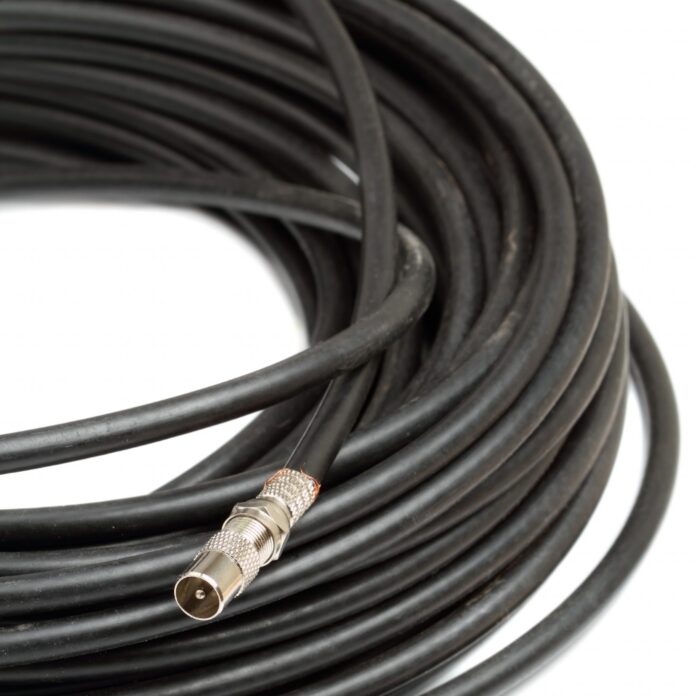Cable TV tried to get into the wireless phone business a decade ago. They failed. Then, years later they tried again. First Xfinity Mobile, next Spectrum Mobile and then Altice Mobile. We have not seen other pay TV companies like Cox enter the wireless space yet. This time around, it looks like cable TV is finally doing well in the wireless space.
Let’s explore the reason cable TV companies are getting into wireless. Whether they are a competitive threat to AT&T Mobility, Verizon Wireless and T-Mobile. And what’s coming next.
There are several catches customers need to be aware of, which we will discuss here. That being said, generally speaking, as a service the cable TV competitors are showing growth in wireless.
Reason Xfinity Mobile, Spectrum Mobile, Altice Mobile got into wireless
First, why are cable TV competitors getting into wireless? Let’s pull the camera back and get a longer-term historical perspective.
Today, cable TV is now in direct competition with wireless carriers, telephone companies, assorted pay TV providers and more.
Today, all companies offer wireless, Internet, pay TV and telephone. This trend is only continuing to grow. Today customers can choose one company and say goodbye to the rest.
Sticky bundles reduce churn and keeps customers
So, companies need to find a way to be that single choice for the customer. This need was the reason for the sticky bundle.
This is one of the important things to understand. When a customer uses multiple services from any company, the chances they will churn away is reduced.
And the more services a customer uses, the lower the churn risk and the stickier they become.
So, in theory, companies don’t have to be profitable in each sector as long as they hang onto the customer and have longer-term profitability.
Cable TV has changed over last decade
Over the last decade, the cable TV industry has changed. Suddenly, they faced competition from every nook and cranny. Consider local phone companies like AT&T and Verizon. Also, there is another growth sector with other Internet based IPTV competitors. Streaming services is also now a growing competitive threat.
So suddenly, cable TV which never faced competition, now faces it from every angle. There are more competitors than cable TV can fight off.
That means customer losses can be expected. That’s why the cable TV companies are selling wireless. They want to get the customer to buy several different services. They want to reduce the chances the customer will switch away.
Cable TV’s goal with wireless is simply to reduce overall churn or customer loss. Period.
Xfinity Mobile, Spectrum Mobile, Altice Mobile are MVNO reseller
Cable TV wireless service is MVNO. That means they are a reseller. They do not own their own wireless networks. Xfinity Mobile and Spectrum Mobile resell Verizon Wireless. Altice Mobile resells T-Mobile.
One reason for the growth is their wireless plans cost less than traditional, post-paid wireless services from AT&T, Verizon or T-Mobile.
However, each of these wireless carriers also offer other network services on an MVNO basis and charge much less to customers as well.
Customers can typically get similar low pricing on these direct MVNO networks like Cricket Wireless on AT&T.
So, wireless users can save money by switching to any of these MVNO players. That’s the slice of the wireless market the cable TV industry is in.
Cable TV wireless success no threat to AT&T, Verizon, T-Mobile
As successful as the cable TV companies are in wireless, they are still no threat to traditional wireless carriers like AT&T, Verizon and T-Mobile.
They face significant challenges. Remember, the cable TV companies don’t typically make their wireless services available to customers who are not already existing broadband or pay TV customers.
After all, wireless service is a slice of the pie, and the pie is there to keep customers from churning away.
You may be thinking, if a company sees loss with each wireless customer, why would they want to just sell wireless service?
That’s why it would make no sense for cable TV customers to just sell wireless. At least until and unless they wireless becomes profitable.
Comcast Xfinity Mobile and Charter Spectrum Mobile both require their wireless customers to use their other services. Altice Mobile sells wireless separately, within their territory.
So, Altice Mobile is the only option for customers who just want wireless. They come at this as an opportunity to win over new business for their other services. While Comcast and Charter look at this to keep their customers tied up in a sticky bundle and reduce user loss.
Another important factor is cable TV companies are not national. They have their own regions. They only offer wireless services to their customers within their regions.
So, as you can see there are quite a few valid reasons they are not real competitors to the wireless carriers AT&T, Verizon and T-Mobile.
Xfinity Mobile, Spectrum Mobile, Altice Mobile use Wi-Fi to reduce costs
To control costs, the Cable TV wireless services use wi-fi to connect to their networks whenever possible. This helps them control costs. When wi-fi is not available, they connect to their wireless carrier as an MVNO.
Bottom line, cable TV competitors have been more successful this second time around with their wireless services.
That being said, they are still not a threat to the wireless industry leaders AT&T, Verizon and T-Mobile, or their MVNO offerings as well. However, competition in a crowded marketplace is always good.
Remember, Xfinity, Spectrum and Altice got into wireless because they were losing business with traditional cable TV. They needed to slow the loss. Slow the churn. They needed to create a sticky bundle.
Based on that reasoning, they are successful in wireless. So, what’s the next chapter in the story about cable TV in wireless? Stay tuned.

